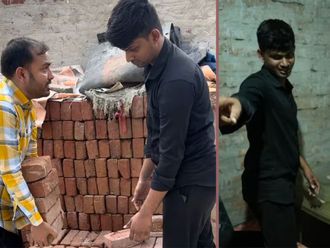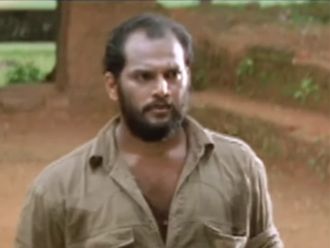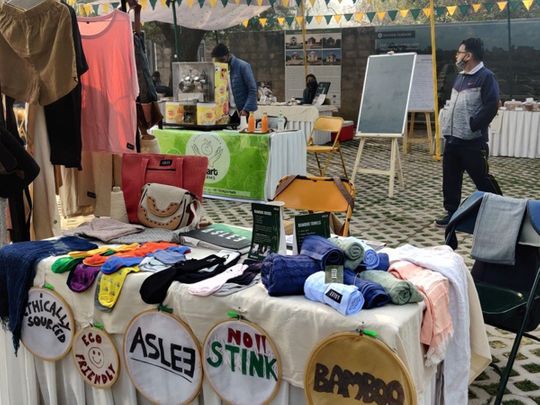
Bengaluru: Sustainability has become the buzz word in our social discourse. From construction and transport to power generation and industry, every segment of our economy is trying to realign its practices with sustainable goals or is at least talking about it.
However, one key segment of our life that is heavily contributing to ecological imbalance, and is being conveniently ignored, is fashion.
Fast fashion is one of the biggest producers of global waste and the primary source of hyper-consumerism that is adding to the growing ecological, social and existential crises.
According to a report by United Nations Environment Programme (UNEP), the fashion industry is responsible for 10 per cent of the annual global carbon emissions, more than all of the emissions from international flights and maritime shipping combined.
At this pace, the fashion industry’s greenhouse gas emissions will surge to more than 50 per cent by 2030.
Consumed by the surging waves of fast fashion and consumerism most of us feign helplessness and go with the flow, not just catering to our urges of buying and consuming more but also knowingly or unknowingly contributing to relentless greed and apathy that is inherent in consumerism and booming of the fashion industries.
Sustainable alternative
However, amidst this onslaught of globalised greed there is also growing consciousness among a few mindful souls who not only realise the non-sustainability and dangers of our hyper-consumerist behaviour but are also working towards developing a more sustainable and natural alternative.
“There is a growing consciousness around sustainability. More and more people are willing to switch. People want to make better choices, they just need access to the right information and resources to make the switch. At Aslee, we are trying to play the role of providing the sustainable choice,” said Zoya Wahi, co-founder of Delhi-based sustainable clothing label Aslee.
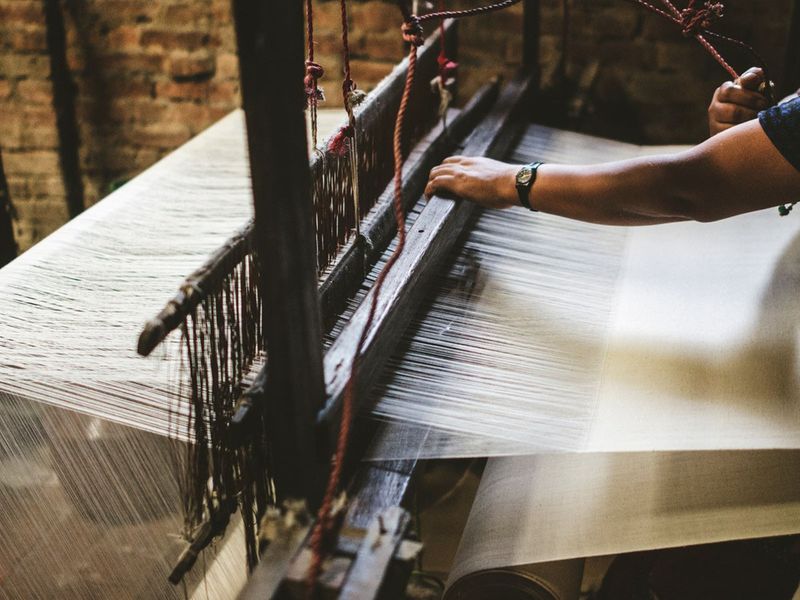
Identifying unique and ethically produced natural fibres and fabrics, Aslee works with small rural production clusters that have good working conditions and make small batches of sustainable garments.
“The idea behind Aslee is to give people options of adding sustainable clothing to their everyday wear, while empowering artisans. This is why we do very basic, capsule collections, so the clothes are wearable for anyone, anywhere,” added Zoya, who co-founded the social enterprise with her friend Nitij Singh in 2018.
The pair of young entrepreneurs works with artisans from the remote villages of Nepal and Uttarakhand in Indian, who continue to follow traditional and sustainable weaving practices.
“We are currently operating at a small scale, working with small clusters of production and making small batches of garments. Because we don’t mass produce we are often sold out. Over the last year, particularly post-pandemic, we have steadily increased the volume of our production and expanded our reach to conscious consumers,” she added, emphasising that the enterprising is deliberately not expanding its range.
Conscious consumption
Since the apparel industry is a major pollutant in the world, Wahi says, they don’t want to add to an already out of control beast by replicating the practices of fast fashion industries.
“We do not want to be part of a culture that uses and throws perfectly good clothes just to accumulate more. It is for this reason we do not make huge collections of seasonal apparel. Our collections are small and we continuously drop limited editions products made from sustainable plant fibres,” she said, elaborating on the reasons behind adopting slow fashion.
Aslee uses a variety of natural fibres such as wild nettle, hemp and bamboo for its garments. Some of the items made from bamboo, hemp and nettle are t-shirts, bags, socks, scarves and stoles.
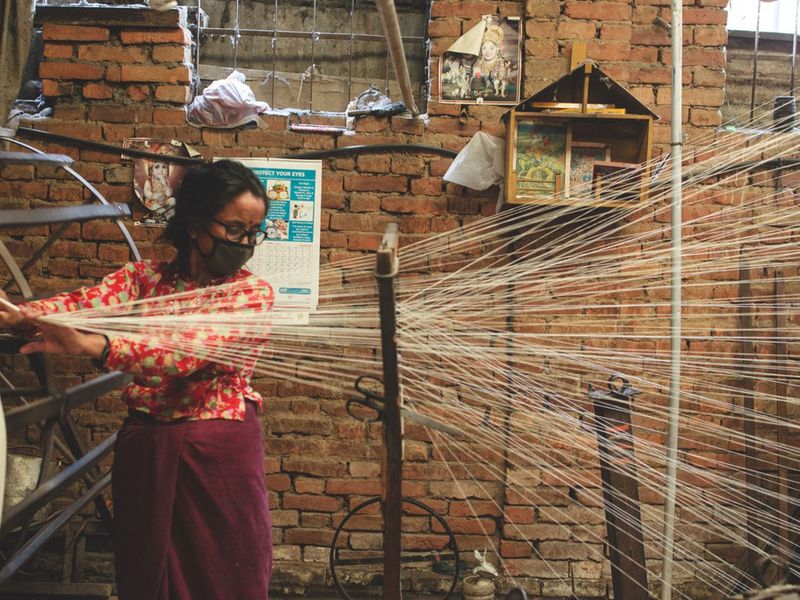
“Very often people’s idea of sustainable options is limited to what they are exposed to and in the case of fashion that often is cotton. But there are many other different fibres and fabrics available that are far more sustainable than cotton,” she said, shedding light on the more sustainable options available.
Wahi’s idea of sustainable fashion is not just limited to the material and fabric but also involves the process and people making the apparels.
The fibres and fabric Aslee works with are locally sourced, working with small communities and clusters to empower them and also provide them with better economic opportunities.
“We identify more sustainable fibres, fabrics and production clusters and work with them to take a very holistic approach to sustainability. We also work with other designers and brands to provide them with fabrics for their collections,” said Wahi, explaining their multi-pronged approach towards sustainability.
Endless possibilities
Wahi says the possibilities in sustainable fashion is endless, particularly in a country like India which is rich in diversity.
“India is a huge country with a vast variety of flora and fauna, so the potential for sustainably sourced fabric is immense. There is a lot of innovation happening in terms of fibre production, with people working on things like orange peel, bamboo, lotus, aloe vera etc. The possibilities are endless,” said Wahi, calling on the administration to develop supporting policy to encourage such innovation and sustainable shift.
She says that Indian traditions have always been relatively sustainable and need to be revived and nurtured further.
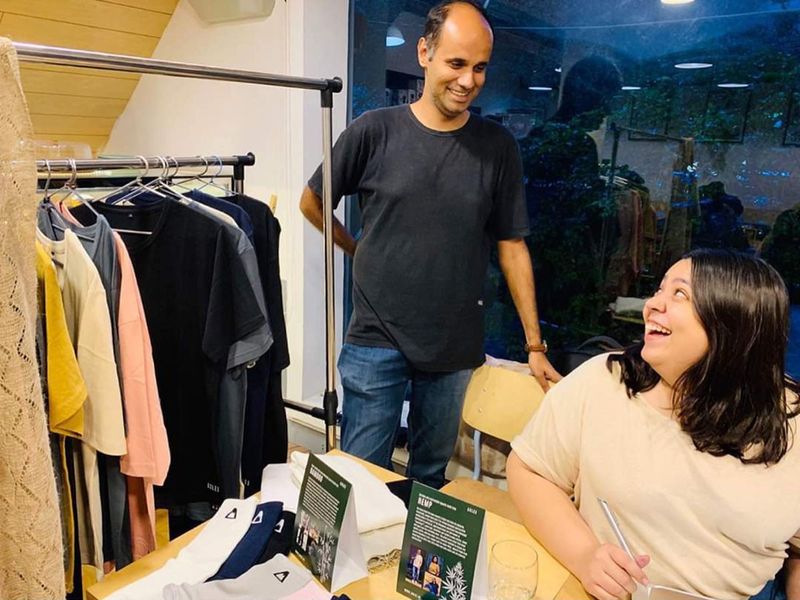
“Personally, the one learning that has come about in the last few years is how in my parent’s household, like a lot of other Indian homes, sustainable practices were already implemented without even realising, like carrying your own bags to the market, upcycling old tattered clothes or other junk into something useful and donating used clothes that are in good condition well as using hand-me-downs from your old siblings or cousins,” she said, pointing out a few traditional practices that needs to sustained or revived.
Calling on people to adopt sustainability as a lifestyle she suggested that using garden pots to grow herbs and putting water out for animals seem to be small practices, but they really add up in the larger scheme of things.
“These are important age-old practices, but sadly we are moving away from these.”
Aslee in Hindi means authentic. Solution to the problem of our planet and its inhabitants need to be drawn from the authentic roots of humanity, anything else will only result in superficial and temporary arrangements. It is obvious that real sustainability lies in authenticity - going back to the roots is the key to moving forward!
-- Shafaat Shahbandari, a freelance journalist based in Bengaluru, and founder-editor Thousand Shades of India


